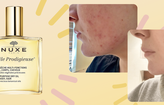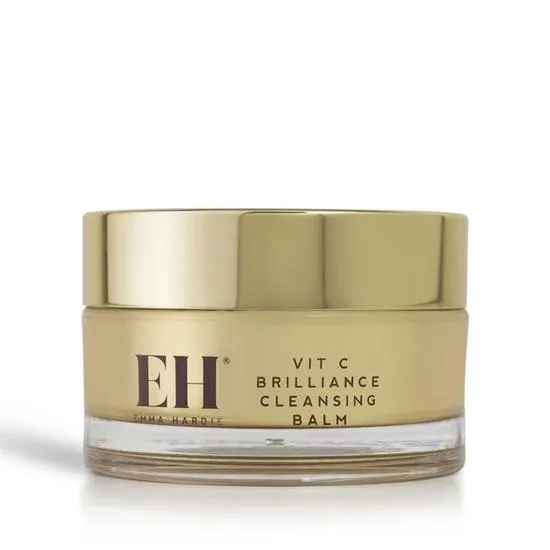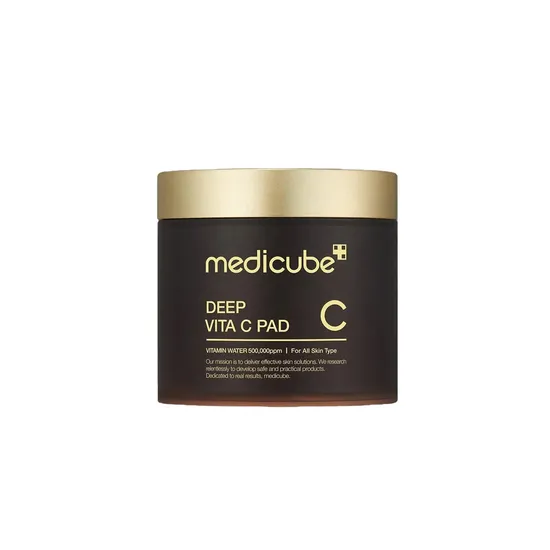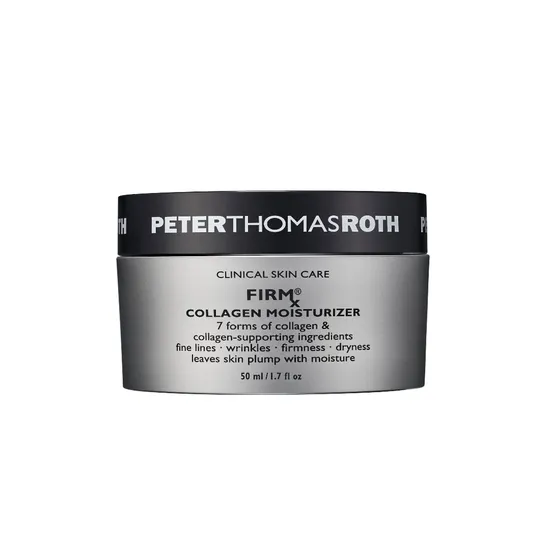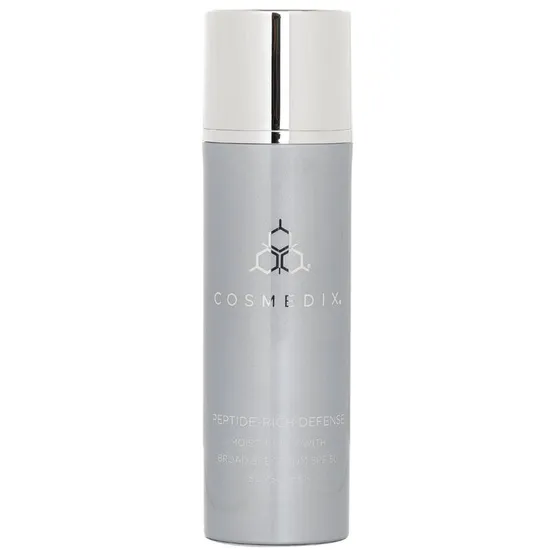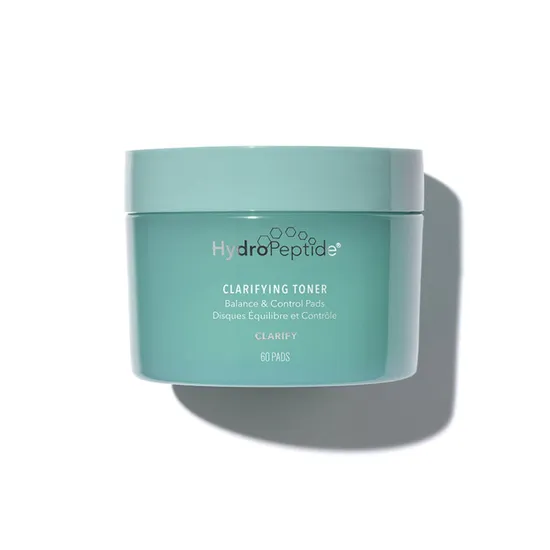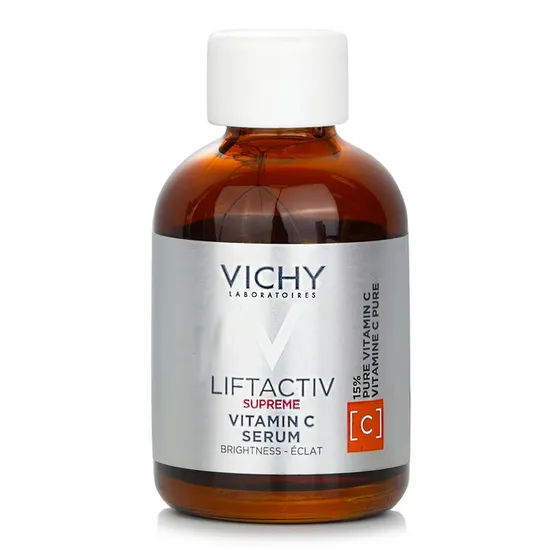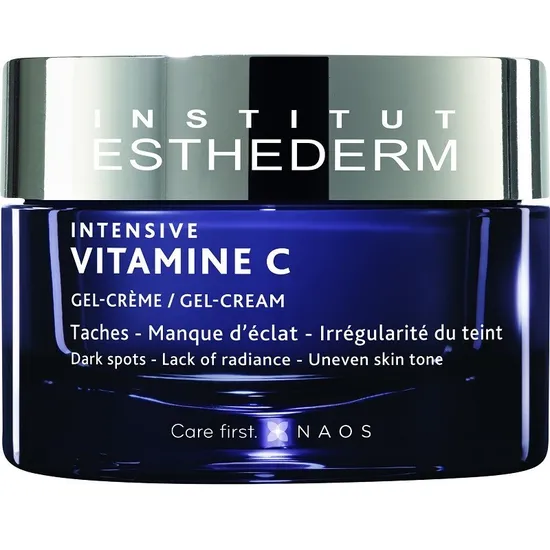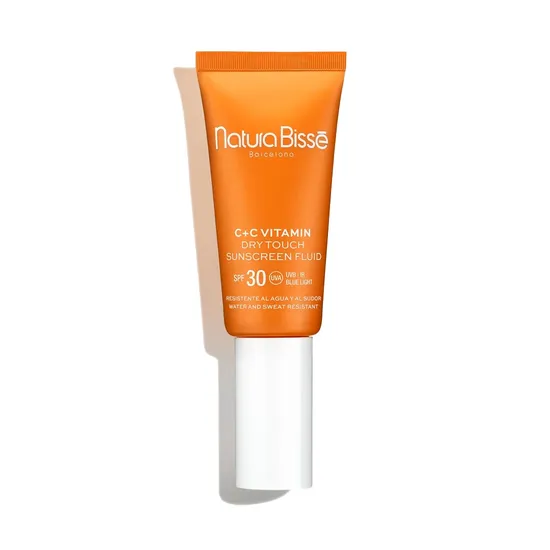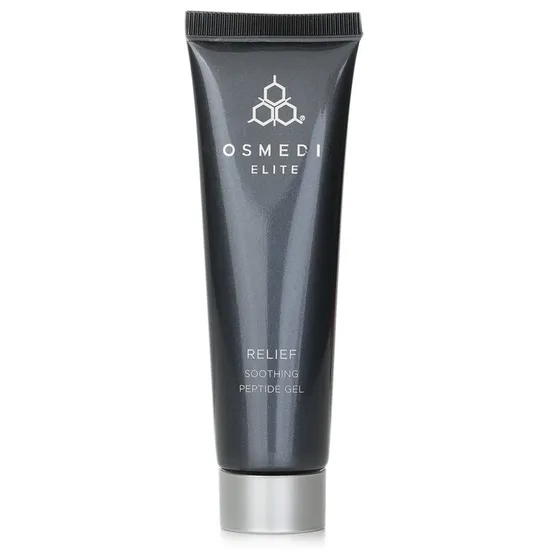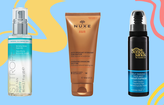
- Skin
- Peptides With Vitamin C
Can You Use Peptides With Vitamin C?
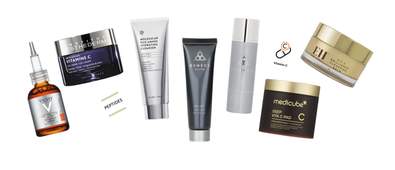
Vitamin C and peptides work through different mechanisms: vitamin C defends and brightens, while peptides rebuild and restore. Contrary to what some may have you believe, there’s no evidence that layering them neutralises their effects. In fact, combining them can support collagen production from multiple angles—stimulating it with vitamin C and reinforcing it with peptides.
Additionally, peptides can help buffer irritation that some people experience when starting a vitamin C serum, making your routine more comfortable and effective overall.
Can You Use Peptides With Vitamin C?
Yes—you can, and they make an excellent pairing for boosting skin firmness, radiance, and resilience.
Peptides and vitamin C are both celebrated skincare ingredients, and each offers powerful benefits on its own. Peptides support collagen production, skin barrier strength, and elasticity. Vitamin C helps brighten the complexion, fade pigmentation, and protect against environmental damage. Together, they offer a complementary approach to anti-ageing and glow.
There was once debate over whether vitamin C would destabilise peptides when layered. But today’s research and modern formulations show that using them together is not only safe—it can be a skin-enhancing strategy for many.
Why this combo works:
- Double collagen boost: Vitamin C supports production, peptides signal synthesis.
- Barrier protection + antioxidant defence: Peptides strengthen skin; vitamin C protects it.
- Enhanced skin repair: Peptides calm and restore, vitamin C regenerates and renews.
- Glow + bounce: Radiance from vitamin C, plumpness from peptides.
👉 Already know the benefits of each ingredient?
Jump To Routine
What does vitamin C do for skin?
Vitamin C (ascorbic acid) is a powerful antioxidant that defends the skin from oxidative stress caused by UV rays, pollution, and other environmental factors. It also plays a key role in collagen synthesis, helping to firm the skin and reduce the appearance of fine lines and wrinkles.
Topically, vitamin C is known for its ability to fade pigmentation, brighten the skin, and improve texture. It’s commonly used in morning routines under sunscreen to maximise its protective benefits.
Key benefits of vitamin C:
- Brightens skin tone: Reduces dullness and enhances glow.
- Fades dark spots: Lightens sun damage, age spots, and acne marks.
- Boosts collagen production: Firms and smooths the skin.
- Protects from free radicals: Shields skin from environmental stress.
- Improves texture: Refines skin and softens roughness.
- Enhances SPF: Strengthens the skin’s defences when used under sunscreen.
Best for:
- Dull or uneven skin tone
- Hyperpigmentation and post-acne marks
- Fine lines and premature ageing
- Sun-damaged skin
Vitamin C can sometimes cause irritation—especially in high concentrations or unstable formulas—so it’s best to introduce it gradually if you have sensitive skin.
What do peptides do for skin?
Peptides are short chains of amino acids that act as building blocks of proteins like collagen, elastin and keratin. In skincare, peptides signal the skin to produce more of these proteins, helping to restore firmness, repair the skin barrier, and improve elasticity.
Unlike exfoliants or acids, peptides are incredibly gentle and work gradually, making them suitable for daily use—even on sensitive skin.
Key benefits of peptides:
- Supports collagen production: Encourages firmer, more elastic skin.
- Improves skin texture: Softens fine lines and smooths roughness.
- Strengthens skin barrier: Helps repair and protect against dehydration and irritation.
- Hydrates and plumps: Enhances moisture retention for a bouncier look.
- Calms inflammation: Reduces redness and promotes skin healing.
- Well tolerated: Suitable for nearly all skin types, including sensitive and reactive.
Best for:
- Ageing or thinning skin
- Barrier damage or dehydration
- Loss of firmness and elasticity
- Fine lines and texture concerns
Peptides are often found in moisturisers, serums and eye creams and can be used twice daily.
Comparing Peptides With Vitamin C Side-by-Side
| Benefit | Peptides | Vitamin C |
|---|---|---|
| Primary Function | Chains of amino acids that signal the skin to produce more collagen and strengthen its barrier | Potent antioxidant that brightens skin tone and boosts collagen synthesis while protecting from free radicals |
| Boosts Collagen & Firmness | ✅ Stimulates collagen and elastin production | ✅ Enhances collagen formation and firms skin |
| Brightens Dull Skin | ⚠️ Indirect brightening through barrier repair | ✅ Strong brightening and glow-boosting benefits |
| Reduces Fine Lines & Wrinkles | ✅ Softens and smooths visible lines | ✅ Improves firmness and texture over time |
| Fades Hyperpigmentation | ⚠️ Minimal direct effect | ✅ Reduces dark spots and uneven tone |
| Hydration & Barrier Support | ✅ Reinforces and locks in moisture | ⚠️ Can be mildly drying in high strengths |
| Antioxidant Protection | ✅ Provides mild antioxidant benefits | ✅ Powerful defence against free-radical damage |
| Irritation Potential | ✅ Very low – suitable for all skin types | ⚠️ Can sting or tingle on sensitive skin |
| Suitable for Sensitive Skin | ✅ Excellent choice – barrier-friendly | ⚠️ Opt for gentle or stabilised forms like MAP or THD Ascorbate |
| Best Time to Use | AM & PM – layers well under moisturiser | AM – for antioxidant protection beneath SPF |
How to combine Peptides With Vitamin C
Option 1: Use both in the same morning routine
This is ideal since vitamin C is typically used in the morning, and peptides are well-suited to both day and night.
- Cleanse your skin with a gentle cleanser.
- Apply vitamin C serum (water-based, low pH). Allow to absorb for 1–2 minutes.
- Follow with peptide serum or moisturiser.
- Seal with a broad-spectrum sunscreen.
This method gives you antioxidant protection and barrier support in one go.
Option 2: Use vitamin C in the morning, peptides at night
Some prefer to split actives for better, more targeted focus.
- AM: Cleanser → Vitamin C → Moisturiser → SPF
- PM: Cleanser → Peptide serum or cream → Moisturiser
This works especially well if your peptide product is richer or designed for overnight repair.
P.M.
Tips for combining vitamin C and peptides
- Use stabilised vitamin C: Look for ascorbyl glucoside or magnesium ascorbyl phosphate if you have sensitive skin.
- Layer thinnest to thickest: Vitamin C serums are usually watery and should go on before thicker peptide formulas.
- Hydrate well: Peptides love moisture—pair with hyaluronic acid or ceramide-rich moisturisers.
- Avoid overcomplicating: If combining multiple actives, keep the rest of your routine simple and soothing.
Apply SPF daily: Especially when using vitamin C in the morning.
FAQs
Can vitamin C and peptides be used together in the same routine?
Yes. They don’t deactivate each other and are often used in the same products or routines to target ageing and dullness from multiple angles.
Should I apply vitamin C or peptides first?
Vitamin C usually comes in a thin serum and should be applied first, followed by peptides if they’re in a thicker serum or cream.
Can I use peptides and vitamin C every day?
Yes. Both are generally safe for daily use. Vitamin C is usually applied in the morning, while peptides can be used twice daily for best results.
Will combining them cause irritation?
Unlikely. Peptides are very soothing and can actually help reduce any irritation that might come from vitamin C, especially in sensitive skin.

Written by Maria Mukaranda
Maria’s background is rooted primarily in creative media and a love for all things written, expressed through experience both online and in print; for creative platforms spanning from music to fashion to beauty.
Top Posts

